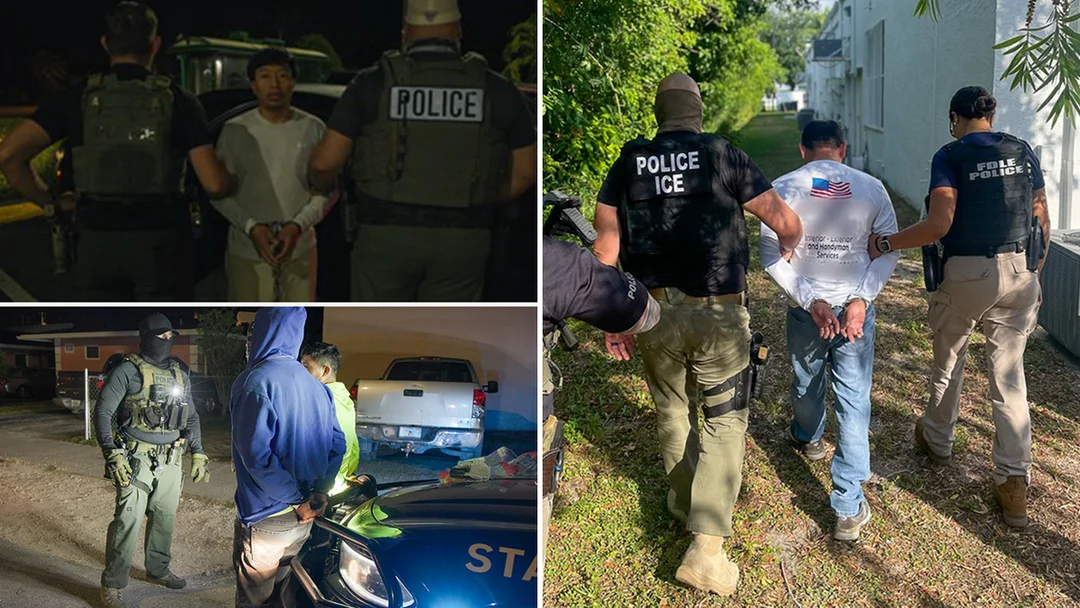
Florida’s Sweeping Immigration Raid: What Does It Reveal About U.S. Enforcement?
In a dramatic escalation of immigration enforcement, U.S. Immigration and Customs Enforcement (ICE) and Florida law enforcement agencies have launched a massive operation, arresting nearly 800 individuals in just four days. This crackdown, part of a broader push under the current administration, raises questions about the future of border security and community safety in America.
Dubbed Operation Tidal Wave, the initiative marks a first-of-its-kind collaboration, utilizing ICE's 287(g) authority to deputize state and local officers. According to officials, the operation targeted migrants with final removal orders, netting 780 arrests across Florida. Acting ICE Director Todd Lyons described it as a 'whole-of-government' approach, emphasizing the role of partnerships with state troopers and local police as 'force multipliers.' He highlighted the operation's scale, stating, 'This is one of the first large-scale missions we've done like this ever.'

Among those apprehended were high-profile cases, including a convicted Colombian murderer, alleged MS-13 and 18th Street gang members, and a Russian national with an Interpol Red Notice for manslaughter. These arrests underscore the operation's focus on public safety threats. For instance, Rafael Juarex Cabrera, a Guatemalan national and alleged gang member, had illegally reentered the U.S. multiple times. Such details paint a picture of targeted enforcement, contrasting with routine patrols and highlighting a shift toward aggressive tactics.
Comparatively, this operation represents a 371% increase in 287(g) agreements since the administration began, as noted by Lyons. It's part of a larger strategy to accelerate deportations, with officials like Homeland Security Secretary Kristi Noem issuing stark warnings: 'If you do not self-deport, we will hunt you down, arrest you and deport you.' This approach has sparked debates on due process, especially amid reports of collateral arrests and expedited removals, where many face orders without hearings.
Analysis shows these raids are not isolated; similar efforts in states like Texas and Virginia indicate a nationwide trend. By integrating federal, state, and local forces, the operation amplifies resources but also raises concerns about civil liberties and community trust. As one official put it, these partnerships are 'making communities safer,' yet critics argue they could alienate vulnerable populations.

In conclusion, Operation Tidal Wave's success in Florida signals a bold step in U.S. immigration policy, potentially setting precedents for future enforcement. But what does this mean for America's values on justice and humanity? As these operations expand, will they truly enhance safety or exacerbate divisions? We invite readers to share their thoughts in the comments below and spread this story to spark wider discussion.